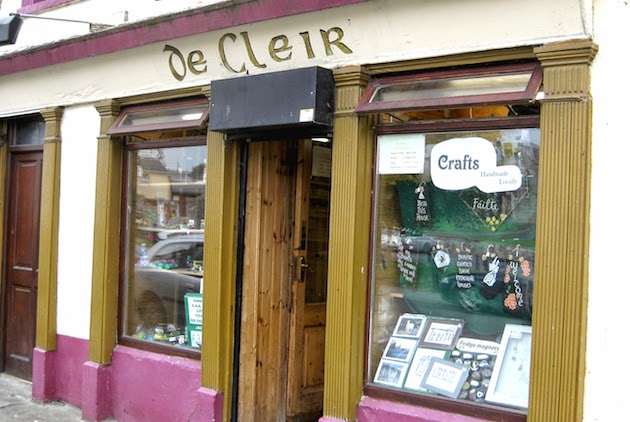KINNITTY in Co.Offaly sits at the foot of the Slieve Bloom mountains and has had a variety of names throughout the years from Cinneity, Kernittys, Killenitty and the Irish Cinneitigh.
Today in Irish the name is spelt Cionn Eitigh, meaning either the head or hermitage of Etech or Eitigh (St. Ita), who also gave her name to the neighbouring parish of Ettagh.

One of the first notable things about Kinnitty is the very wide streets and it would be easy to believe that they were recently constructed until you see the age of the buildings which border them. The village consisted of five houses at the end of the eighteenth century and had grown to ninety-six dwellings by 1841.
The Green
The Bernard family who were the estate owners built the RC Chapel circa 1841. They offered the then parish priest Fr. Delaney a house for himself and his successors and 10 acres of land if he would let them build a chapel at their own expense. Fr. Delaney refused but the Bernards went ahead anyway and the bishop compelled him to use the chapel.
This picturesque chapel now hosts a great many weddings, with many of the wedding breakfasts being held in either Giltrapp's, The Slieve Bloom Bar or The Kinnitty Castle Hotel.
I wonder if the pump is dry too ?
A dry summer has almost dried up this river
A great pub for a good pint of Guinness !
I have always admired the four foliate heads above doorway
You might think from looking at the window that this is just a gift shop,
well you would be wrong for it sells groceries, bread, butter and ice-cream.
The Kinnitty Pyramid, the only one of its kind in Ireland, is situated in the graveyard of the Church of Ireland. It stands 30 feet in height and was built as a crypt by Lt. Col Richard Wesley Bernard for his family on his return from Egypt in the mid 1800's.
It is an exact replica of the Pyramid of Cheops in Egypt.
The pyramid was completed in 1834 and it is now permanently sealed by 3 inch thick doors
made from steel which lead down to the interior. The tomb holds 6 coffins belonging to the Bernards of Kinnity Castle with the last burial taking place in 1907.
Other places to rest your head
We often stop at Kinnitty on our way home from Birr with our weekly shopping as it is such an attractive, tidy and friendly village. For me it represents many of the Irish towns and villages across the island and is a place we never get tired of visiting.









